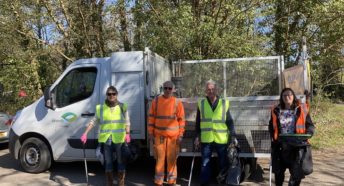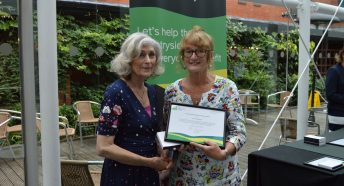Looking back at CPRE’s litter campaign successes
From our very earliest days we’ve championed innovative ways to tackle litter in the countryside. We look back at our campaign successes and ask: what’s next?
‘An indescribable heap of filthy paper, empty fruit tins, broken bottles, cigarette and chocolate wrappers, matchboxes, cigarette ends and other litter,’ is how the Sheffield Daily Telegraph described it. But the exhibit in question, displayed in a glass case in the imposing surroundings of Cutlers’ Hall in Sheffield, was officially titled What Sheffield Left at Stanage Last Bank Holiday.
Local schoolchildren, rallied by CPRE’s Sheffield and the Peak District branch, had collected the unsightly mass on a litter pick at Stanage Pole on the borders of Derbyshire and South Yorkshire. Exhibited so publicly by CPRE, it drew attention to an ugly truth: some of those flocking to the countryside to enjoy its beauty were oblivious or indifferent to their own part in despoiling and polluting it.
That particular litter pick took place in 1929 – within three years of CPRE’s birth. Indeed, the mounting public concern about the protection of rural England that led to CPRE’s founding went hand in hand with dismay about the rise of litter.
‘Campaigning against rubbish in the countryside was part of CPRE’s opening manifesto,’ says former CPRE litter campaign director Samantha Harding. ‘While the type of litter may have changed over the years, volunteers continue to collect sackloads of refuse from beauty spots and green spaces today.’
Throughout the early 20th century, CPRE played an active role in the growing campaign against litter: from organising local volunteer cleanups and instigating the first Countryside Code of conduct upheld by litter wardens, to galvanising support for the first ‘Keep Britain Tidy’ campaign, ahead of the Festival of Britain in 1951.
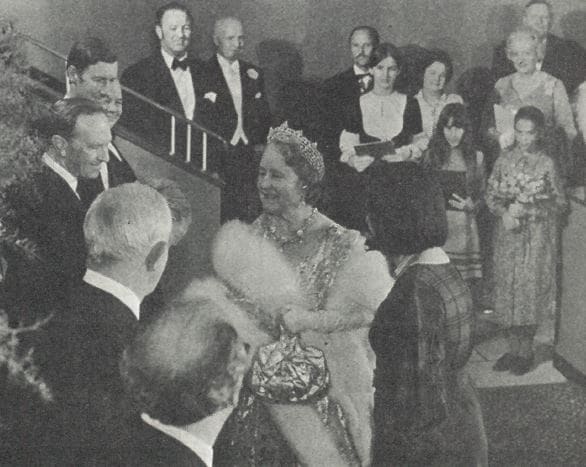
But as the 1950s and 1960s progressed, a new threat arose: cheaply produced disposable plastic. With a plastic bag taking around 450 years to break down, and plastic bottles as long as 1,000 years, the new packaging was not only a new type of eyesore but also a persistent pollutant.
During the 1970s and 1980s, CPRE continued to lobby for packaging to be made easier to recycle, for an end to wasteful single-use bottles, and for tax incentives to deter the packaging industry from producing so much waste in the first place. Sadly, in 1981, the House of Lords rejected a Bill that would introduce a deposit on single-use drinks bottles, entrenching a throwaway culture that would last a generation.
Stopping the drop
By the time author Bill Bryson became CPRE president in 2007, the annual cost of litter clean-up in the UK was spiralling towards £1 billion. Bill’s personal passion for a litter-free countryside helped fire the launch of our Stop the Drop campaign against litter in 2008.
Stop the Drop also reaffirmed CPRE’s support for a deposit return scheme (DRS) that would reward consumers for returning used drinks containers to retail outlets for recycling. High-profile coverage followed, such as ‘Notes on a Dirty Island’, the BBC ‘Panorama’ episode made by Bill and seen by four million in 2008.
As well as taking the message to the public, he also put litter on the political radar, pushing Defra for a debate on the issue in 2009, and quizzing party leaders Brown, Cameron and Clegg on their commitment to eradicating it, for a Times interview ahead of the 2010 General Election.
Defra went on to hold its first litter round-table in March 2010, with attendees including McDonald’s and Coca-Cola, followed by a summit the year after.
Mobilising litter activists
As well as campaigning for change at the highest level, CPRE has always excelled at grass-roots action. Building on our network’s history of organising litter picks and raising local awareness of the issue, we teamed up with CleanupUK to create LitterAction.
Our Stop the Drop campaign inspired more than 600 new LitterAction groups and, to date, its volunteers have cleared over 250,000 bags of rubbish from landscapes across the country.
Banishing plastic bags
Another major thread of Stop the Drop was the campaign to tackle single-use plastic bags, which often end up buried in landfill, or are discarded in the environment. Eight billion lightweight carrier bags were issued in England in 2011.
In 2012, CPRE co-founded the Break the Bag Habit coalition with Surfers Against Sewage, the Marine Conservation Society and Keep Britain Tidy (later joined by Greener upon Thames and Thames21). The partnership called on England to follow the rest of the UK and introduce a small charge on single-use plastic bags – which the government implemented in 2015. Since then, over 25 billion fewer plastic carrier bags have been used in England.
‘Break the Bag Habit was a great example of collaboration between organisations, each bringing its own expertise to the table to make things happen,’ says Samantha. ‘The introduction of the 5p bag charge shows how effective economic incentives are when it comes to tackling waste.
‘It changed consumer behaviour almost overnight, and made people realise we didn’t need those billions of bags in the first place.’
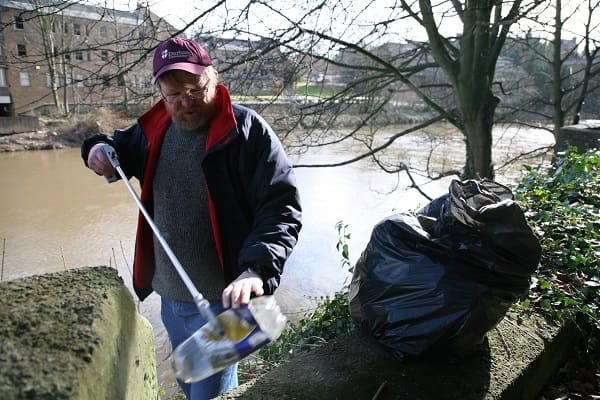
Rubbish on the roads
Another noteworthy success has been our campaign against roadside rubbish. It was a criminal offence to throw litter from a vehicle, but in practice, culprits were unlikely to be prosecuted. The yearly bill for roadside litter clean-up had reached over £800m for councils by 2010-11. Our ally on this campaign, the peer Lord Marlesford, introduced a Private Member’s Bill to the House of Lords that gave local councils the power to issue civil penalties for littering from cars. The government granted the new powers to local councils from 2015.
Got the bottle
Defra’s announcement in March 2018 that it planned to introduce a DRS came after a decade of hard work by our campaigners. During that time, polling carried out on behalf of CPRE showed strong public support for a DRS, while research we commissioned continued to drive home the many potential benefits, from increased recycling to job creation.
‘We championed a DRS even when there seemed to be little appetite for one among politicians or the drinks industry,’ says Samantha. ‘It’s not just about dealing with the bottles and cans that end up as litter, it’s also about resource efficiency.
‘One day we might find ourselves digging up all the plastic, glass and aluminium that we’ve just been burying in landfill.’
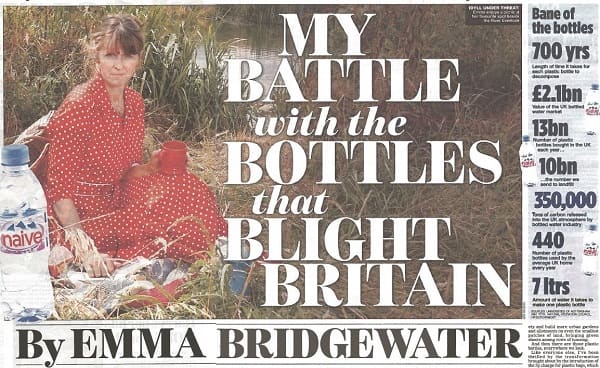
Turning the tide
Thanks to the work of CPRE and others – as well as coverage of plastic pollution through the BBC Blue Planet series and the Sky News Ocean Rescue campaign – Samantha believes we are waking up to the fact that we can’t just carry on throwing stuff away. With the EU banning the most harmful types of single-use plastic and many businesses pledging to eradicate it from their supply chains, it feels as if the tide is finally turning against waste – but we still have a long way to go.
‘There’s too much focus on the consumer when it comes to tackling waste, and not enough on the industry that produces it,’ says Samantha. ‘Right now, 90% of all UK waste clean-up costs fall on the taxpayer, rather than those responsible for flooding the market with pointless packaging in the first place.
‘We want to see a system in which the polluter pays. Legislation is needed to compel manufacturers and retailers to design and stock less wasteful products, and take responsibility for capturing and recycling those products after use.’
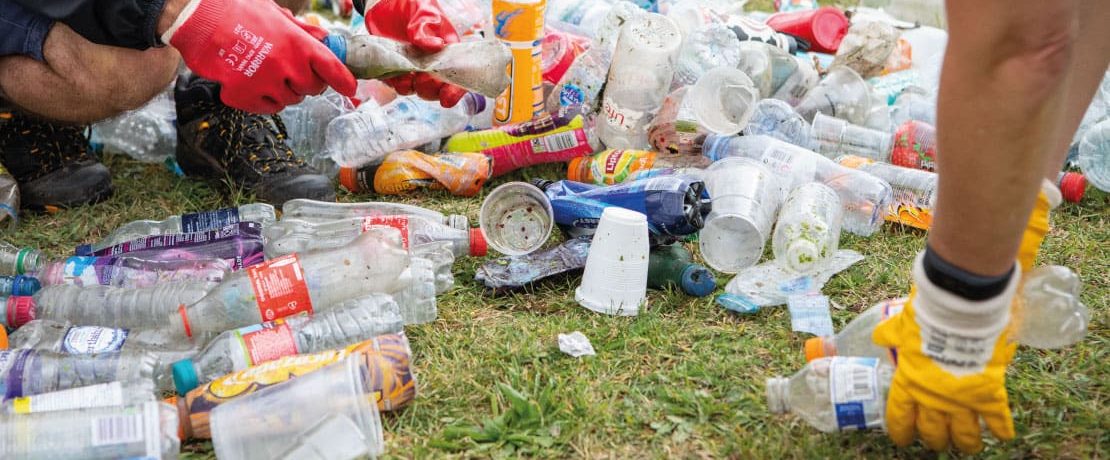



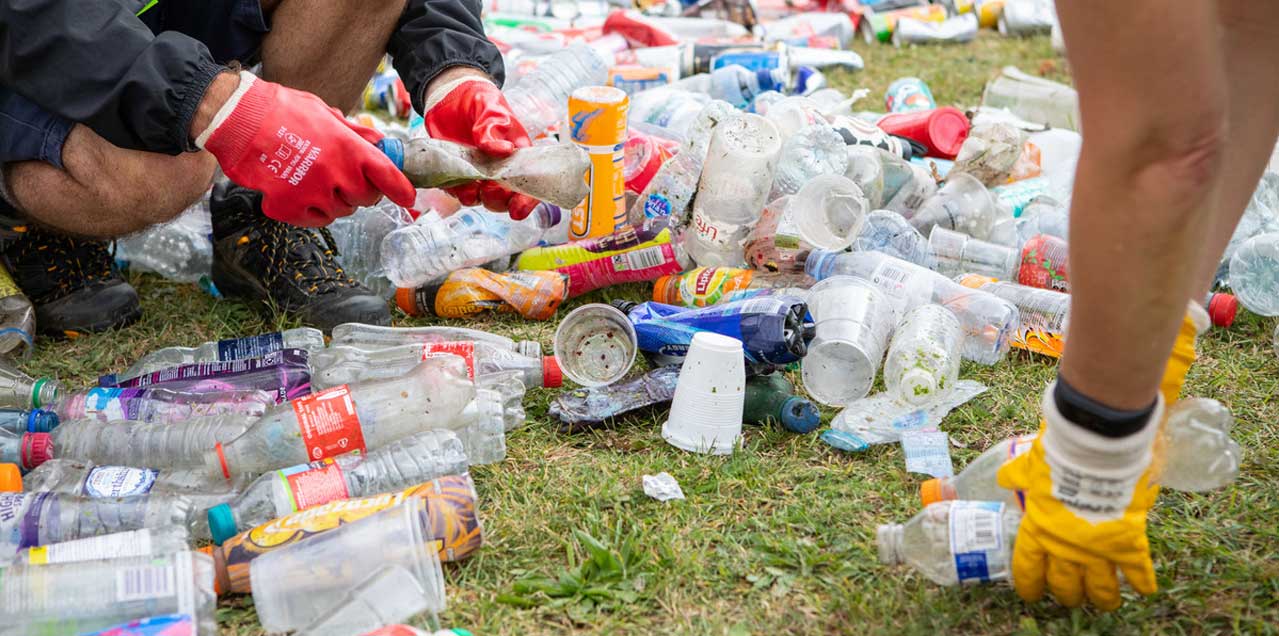
 6 min read
6 min read 